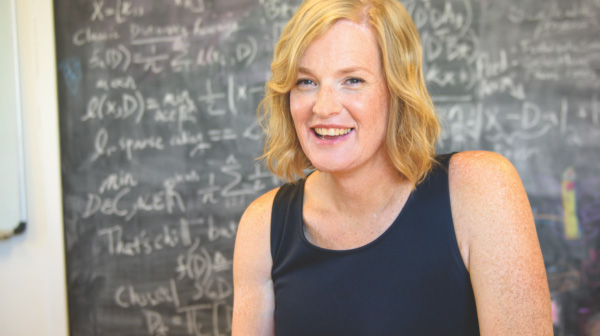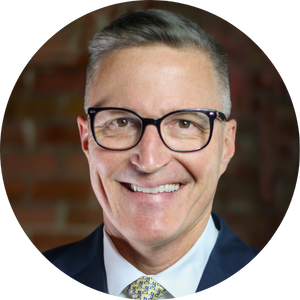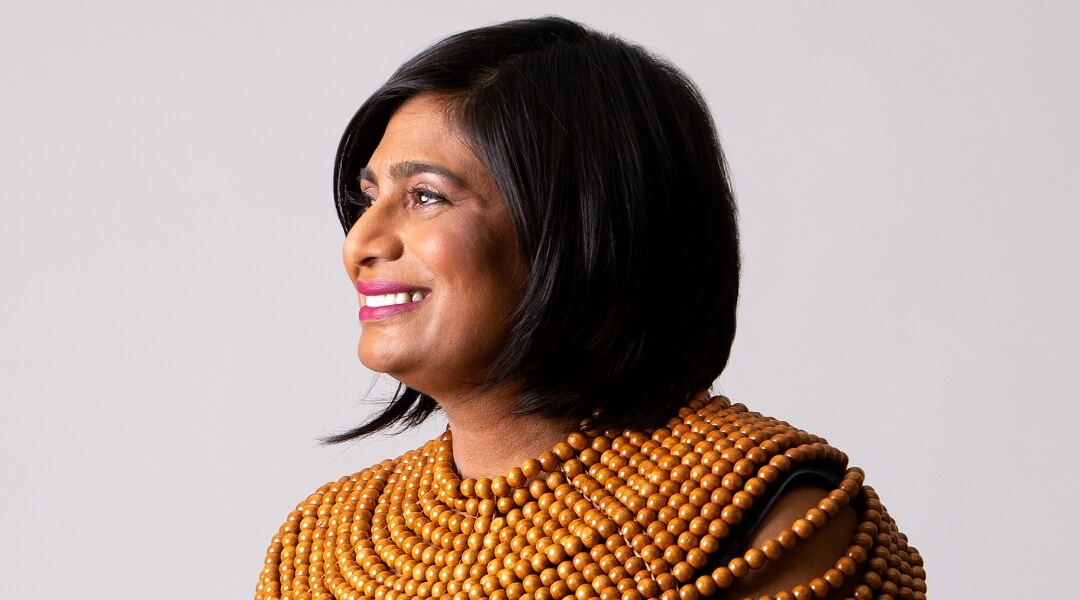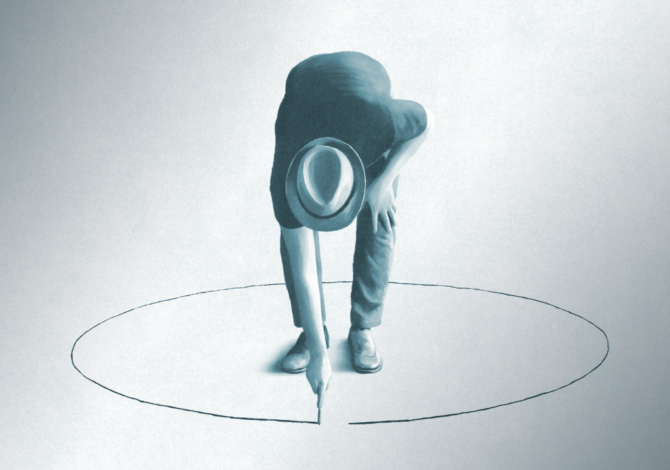Theoretical neuroscientist Dr Vivienne Ming and meta-learning expert knows that the key to robot-proofing ourselves and new generations isn’t becoming more digitally savvy – it’s becoming more human.
By her own admission, Dr Vivienne Ming will probably never read this article. “I have a hard rule. I never read any interviews, don’t look at photographs, don’t listen to radio shows or watch videos about myself, ever,” the neuroscientist entrepreneur says. “That is its own trap. When you do it, it leads you down the wrong path. Your life starts to become all about you. And it is so hard to walk away from that – because it feels good.”
Ming’s reluctance to indulge her ego is born of a greater belief: that humans should find their purpose in life and focus relentlessly on that rather than personal glory, which might be a pleasant by-product.
“Your aim can very quickly start to move away from serving your purpose to serving your outcomes,” she says. “And as soon as you do that, your outcomes start to move further and further away from you.”
I suggest that this is the classic ‘authenticity trap’ – the minute you start to try to be authentic because you know that it increases your influence, people start to detect a façade. Ming completes my sentence: “…and the whole thing falls apart.”
Joined by Michele Taipale, Duke Corporate Education’s San Francisco-based client director, I meet Ming at her office in downtown Berkeley, California. Mathematical equations, scratched in chalk on Ming’s old-fashioned blackboard, evoke my own days studying downcoast at UCLA, where I’d often test my welcome in my economics professors’ offices. Ming’s view of the campanile at UC Berkeley, the prime Bay Area real estate, reflect Ming’s superstar neuroscientist status – the product of a brilliant mind and an inherent belief that hard work pays off. Yet brains, Ming implies, are much more common than the belief.
“So many people learn in deep and inescapable ways that it is not worth trying in life,” she says. “If there was one dynamic in the world that I would like to change, it’s that.” She cites research done at MIT, where a range of students were asked to solve mathematics problems while being filmed: “If a student supplied an answer and it was wrong, and then they frowned, that was a big predictor that they would give up – that they wouldn’t continue to work hard, not just on that problem, they’ll just give up.” Yet one group responded differently: MIT’s own students. “If they got it wrong and frowned, that predicted that they would try harder. Now perhaps that’s just an unusual experience for MIT students – ‘hey, look at that, I got something wrong!’ – but another factor is that their whole life has trained them not just to believe – but to know – that if they put in more work they are going to be rewarded. They frown because they are surprised they got it wrong, but their reassessment isn’t: ‘I’m not good enough.’ Their reassessment is: ‘This takes more work.’”
Equality of choice
This divergence in approach has clear consequences for social mobility. Much socioeconomic analysis centres on the West’s poor record in equalizing opportunities so a black child from Harlem might have the same life chances as a prep-school kid from the Upper East Side. Ming’s analysis is deeper and more radical. “It’s not just about opportunities,” she says. “Choice itself is fundamentally inequitably distributed. We think we can choose our way into a different life, and we certainly think that other people should. But the reality is that you need to build a community, an organization, a civilization in which those choices will pay off. Because, if they did, people would make them.”
She accepts that privilege creates advantage: “We know scientifically that it’s a powerful thing.” But she challenges the notion that privilege is universally helpful. “Many of the formalisms in our privileged lives work against our self-actualization,” she argues. “My research mirrors a lot of other research – incentive systems undermine us and the paths to our long-term selves. Reflect on that: that’s almost every part of life. Grades in schools, test scores, trying to work for the right company, impressing your boss, not looking bad in front of your friends. We see clearly in the research how these exogenous motivations undermine the person you can be.”
This self-actualization is critical to the challenge posed by artificial intelligence, she says, which will require humans to exploit their edge as questioning, challenging, imaginative beings. “We get trapped into trying to please other people – and we lose ourselves,” she says. “The more insensitive you are to those incentives, the better your long-term outcomes.”
Once people discover their own purpose, decision-making becomes exponentially easier, and quicker, Ming says. She was offered chief scientist jobs and the like at Uber, Netflix and Amazon that would have made her wealthy enough to “buy a mansion for my family”. But she applied the test: “These offers come in on a semi-regular basis and – but for the Amazon offer that came with a framing that made me think hard about it – I think about them for three to five seconds. You know, I’d love to know more about Netflix but, let’s be honest, it would be purely self-indulgent. I love a good movie. But I don’t see how this serves my purpose.”
Finding purpose
Ming is a world leader in meta-learning. Her business, Socos, uses machine-based tools to help people in the workplace and education learn from their environments, experiences and dilemmas. Rather than simply acquire knowledge, which is held in infinite volume on the internet, yet is still taught by rote in schools, Socos helps people problem-solve, craft, create, question and make choices. “Building better people,” she calls it. It’s her purpose in life.
“Self-driving cars are cool but they don’t serve my purpose – in fact, they do the exact opposite. Amazon said to me: ‘In ten years we will be a million-person company, your job will be to make their lives better.’ Now that aligns with my purpose very clearly. But I still felt that – paycheque aside – I could serve my purpose better doing what I am already doing.”
Her impulse to change education came, like hope from Pandora’s box, from the near-disaster of her own youth. “It seems shocking when it is someone like me who is in such a privileged position – but I never found a connection between working hard and being happy and successful,” she says. “So I thought, ‘how can I deliver the latter part of my life to people without their having to go through the first 20 years?’”
Ming is among the clearest analysts and advocates of the sometimes-nebulous concept of purpose, thanks to being a living embodiment of its power. But she had to grapple with severe depression, reach a nadir, to get here. “Unfortunately for me that meant being homeless, having very stark experiences with suicide, and coming out the other side,” she recalls.
Did her ordeal help her find the courage to change her life? “Courage sometimes is the loss of everything else,” she says. “Courage for me was easy to come by in the sense that I’d squandered everything. I had a night with a gun, in the car that I was living in. The whole night was spent saying to myself, ‘either come up with a reason to be alive, or stop suffering’. I grew up being told that I would win the Nobel prize and somehow that I would also be a kicker in the NFL. But you have a night like that and there’s nothing else left.”
Her peers’ forecasts of her becoming a football star are not as outlandish as they might seem. Ming began life as Evan Smith, a talented college athlete who excelled not just at mathematics and science, but at track-and-field and American football. “The moment of greatest of courage for me was showing up one day at Berkeley as me,” she recalls, “the courage of showing up in the midst of gender transition. Just going in the next day as a new person and having no idea how anyone was going to react. I’d sent messages about it the night before, my hands shaking. Once you have been suicidal, and then showing up in a dress, some of the other stuff in your life seems a lot less terrifying.”
That was in 2006, when being transgender was not – as Ming puts it – “an en vogue thing – I literally had no idea if I would lose my parents… my friends… my positions”. As it transpired, she lost none of them, but she didn’t know that ahead of time. “There are real benefits to having these hard experiences,” Ming says. She is happily married to Norma Chang, who is her business partner and with whom she has two children. Family life came with serious challenges, yet the couple got through them: “However hard it was to spend four days in a paediatric intensive care unit with my newly diagnosed diabetic son, we were going to leave the unit as a family. A lot of families in the hospital were not – they were going to leave someone behind in that hospital. You get perspective.”
Purpose with courage can be a powerful combination. She once told Alphabet-Google chairman Eric Schmidt publicly that he didn’t understand entrepreneurship: “I’m not saying that it’s not terrifying to be on a stage in front of 10,000 people, or to say something bluntly to a famous and respected leader, but those things mean nothing to me now.”
Coming-out classes
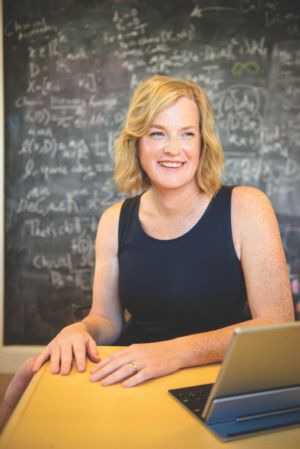
I recount my own story of coming out at a time when I was struggling to integrate my own personal growth amid the macho culture of a strategy firm. I put it to her that all leaders – not just those who are LGBTQ– need to have the courage to ‘come out’ as their true selves. Shouldn’t we all be going through ‘coming-out’ classes?
“Some of these rewiring experiences, the ones that get highlighted, are the ones that are pretty brutal,” Ming says. “You know, I understand that, but I would never wish my life on my kids. My father was in Vietnam and it was transformative, but he’d never wish that on his kids either. There’s a tension between the impact we want to have on people and the cost that comes with it. But one of the lessons that comes out of that is that purpose is defined by sacrifice.” That is, purpose isn’t purpose unless it’s in service of a greater human-centred goal that’s important and difficult to achieve. The evidence proves it: “The numbers I look at are in the hundreds of millions – we are not talking small studies – this is powerful stuff.”
Yet in an age of accelerating technological advancement, finding a purpose – in order to become more human – is more crucial than ever. “The way to robot-proof your kids, to robot-proof yourself, is to be more human,” Ming says. “Sometimes that gets oversimplified. Like, ‘AI is not good at making eye-contact, so practise these more human social skills.’ No, it’s much deeper than that.”
She pokes fun at the bot that recently beat the world’s greatest Go player as “not actually understanding Go”. “Its equivalent is a factory worker that knows his process,” she says. “If you change just one rule of Go – and the rules are very simple – it would lose dramatically. If you put it in a room with the world Go champion and then burned down the room around it, would it beat the world Go champion? No, the champion would have left the room, because he understands the world. He’s not just executing an algorithm.” As it turns out, humanity still matters.
Ming promotes the idea of humans using meta-learning to become craftsmen; to ask “why?” not “what now?” “My big fear is not technological dystopia, and it’s certainly not technological utopia,” she says. “It’s that we leave so many people behind we don’t find the social stability necessary to function as a civilization. The thing about meta-learning is how you manage yourself, and also your society, so these [crafting, questioning] qualities just develop. Everyone can be amazing, but it takes more than just opportunity to make it happen.
“You realize that there are thousands – millions – of people who could be doing what I do – building, inventing, changing the world,” she says. “Ambitious men have been promising us spaceships and AI and cybernetics. If every little girl had been given the reins to her own potential, we’d already have them.”
— Michael Chavez is chief executive of Duke Corporate Education.
An adapted version of this article appeared on the Dialogue Review website.
